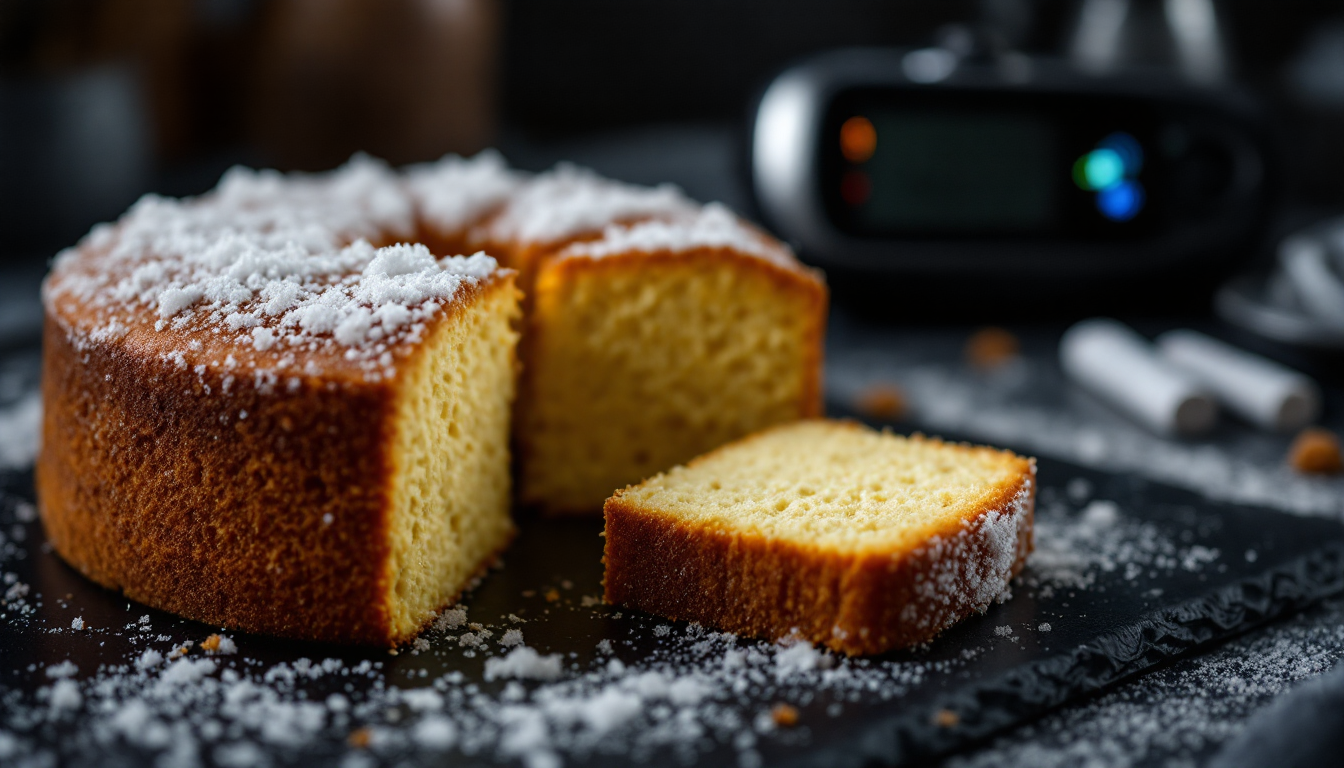Madeira cake appears innocuous on supermarket shelves, but this traditional British sponge harbors concerning nutritional properties that make it a questionable choice for regular consumption. Hidden beneath its simple appearance lies a troubling combination of refined carbohydrates, added sugars, and saturated fats that collectively contribute to multiple health concerns.
The Deceptive Sugar Bomb in Your Shopping Basket
A standard slice of Madeira cake (37g) contains approximately 9.4g of sugar, while larger portions can deliver upwards of 20g. For perspective, a single moderate slice provides nearly 40% of the WHO’s recommended daily sugar limit for women. Multiple nutritional databases confirm that commercial Madeira cakes average 23-31g sugar per 100g, making them among the more sugar-dense baked goods available.
“Madeira cake represents what we nutritionists call a ‘stealth sugar carrier’ – consumers often don’t realize they’re consuming nearly half their daily sugar allowance in what seems like a modest portion,” explains Dr. Sarah Thornton, clinical dietitian at Central London Hospital.
The Saturated Fat Concern Your Heart Should Know About
Beyond sugar content, Madeira cake delivers 5-8g of saturated fat per 100g, primarily from butter or shortening. Regular consumption can significantly contribute to elevated LDL cholesterol levels, increasing cardiovascular disease risk. A recent study showed replacing refined carbs with whole grains reduces dangerous belly fat by 18% – precisely the opposite of what Madeira cake consumption promotes.
The Empty Calorie Problem
Most commercial Madeira cakes deliver approximately 370-406 calories per 100g while offering minimal nutritional value. With typically less than 2g fiber per 100g and negligible micronutrient content, Madeira cake exemplifies “empty calories” – providing energy without meaningful nutrition. This creates a dangerous nutritional void that displaces more nutritious foods from the diet.
Blood Sugar Rollercoaster: The Hidden Metabolic Impact
The combination of refined flour and high sugar content gives Madeira cake a high glycemic index, triggering rapid blood glucose spikes followed by insulin surges. Dr. Michael Hansen, endocrinologist, notes: “These repeated blood sugar fluctuations can contribute to insulin resistance over time, potentially increasing type 2 diabetes risk, especially in genetically predisposed individuals.”
Additives and Preservatives: The Invisible Ingredients
Many commercial Madeira cakes contain concerning additives including:
Emulsifiers like mono- and diglycerides (E471)
Artificial flavors and colors
Preservatives including potassium sorbate
Palm oil (in cheaper varieties)
These ingredients have been associated with disruptions to gut microbiota and potential inflammatory responses. Research shows certain dietary fibers can increase beneficial gut bacteria by 75% – something Madeira cake notably lacks.
The Insulin Effect: Why One Slice Is Never Enough
The physiological reality of consuming Madeira cake extends beyond calories. When consumed, its high-carbohydrate, low-fiber composition triggers significant insulin release, which paradoxically increases hunger rather than satisfying it. This metabolic response explains why many consumers report difficulty stopping after one portion, creating a cycle of overconsumption.
“In my clinical practice, I’ve seen patients unwittingly consume 600+ calories of Madeira cake in a single sitting, believing it to be a ‘light’ option. The insulin response actually stimulates further appetite rather than satisfying it,” reports registered dietitian Emma Phillips.
Healthier Alternatives That Satisfy Your Sweet Tooth
Instead of commercial Madeira cake, consider these nutritionally superior options:
Homemade versions using whole wheat flour, reduced sugar, and added ground nuts
Greek yogurt topped with fresh berries and a small drizzle of honey
Oatcakes with a thin spread of almond butter and cinnamon
These alternatives provide fiber, protein and beneficial nutrients while still satisfying sweet cravings. Switching to unsweetened options like yogurt can dramatically improve digestive health, unlike refined, sugary products like Madeira cake.
Making Informed Choices: When Moderation Matters
While occasional consumption of Madeira cake within a balanced diet likely poses minimal risk, regular intake potentially contributes to chronic health issues including weight gain, metabolic dysfunction, and increased inflammation. Even adding an hour of sleep improved fasting glucose by 2.87% – highlighting how lifestyle choices impact metabolic health beyond food.
The nutritional verdict is clear: Madeira cake represents a concerning combination of refined carbohydrates, added sugars and saturated fats with minimal redeeming nutritional qualities. For optimal health, this traditional treat is best reserved for rare occasions rather than regular consumption.

